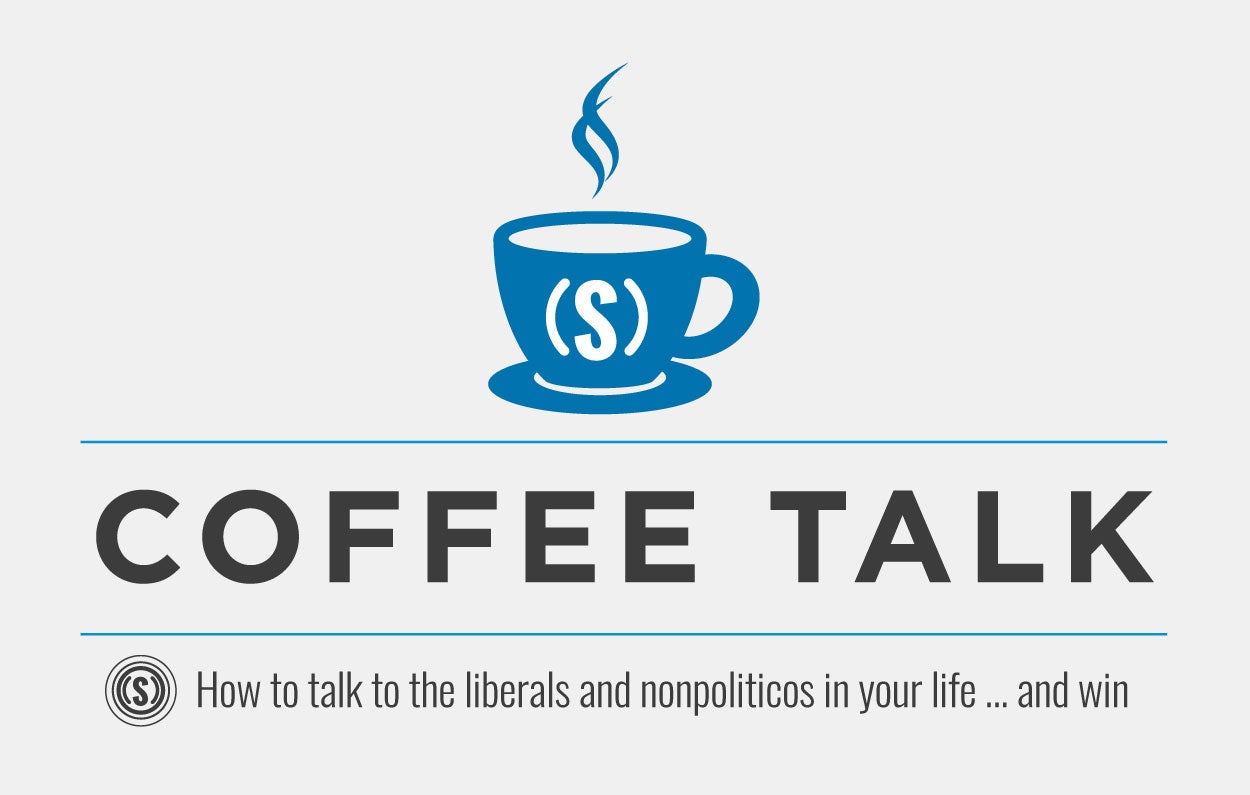3 Ways to Use the Presidential Debate to Talk Taxes
Beverly Hallberg /
With the leak of Donald Trump’s tax records by The New York Times, and following round two of the presidential debates in which both candidates spoke about their tax plans, taxes are in the news to stay.
But like its code, taxes are complicated. There’s the corporate tax rate, the sales tax, personal income tax, and loopholes to apply. The likelihood anyone does their own taxes without the help of an online program or accountant is low. Ain’t nobody got time for that, even if they could figure it out.
Starting today, and over the next few months, tax reform will be a hot topic to discuss with neighbors, family, friends, and co-workers. So where do you begin, and what angle provides the best argument for tax reform?
Here’s how to break it down.
Common Ground
It’s a pretty safe bet that most people agree: 1) we should all pay our fair share, but 2) the current tax system is difficult to understand. Too many loopholes exist that authorize some to legally circumvent a hefty payment or pay nothing at all. It’s not fair, but reform can make it fair; transparency works wonders.
Even though there is an argument to be made for private vs. public management, taxes fund services we use every day—think infrastructure, public transportation, etc. If we have to pay our fair share to ensure these services continue, we’d appreciate if our neighbor pays his fair share too. Removing the loopholes and simplifying the tax code achieves this end.
So, start with “we’re in this together.”
Examples
If we agree that all should pay their fair share, then the simplification of the tax code will better guarantee that happens. It will also reduce costs for families and small businesses.
The Daily Signal reported in August on how much money people have to pay just to file their taxes. The code is so complicated that a ridiculous amount of time and money is spent before the check is written to the state and/or federal governments. As the article notes: “Tax complexity is a charge on a charge.” What?
If that seems absurd, it’s because it is. Think of the possibilities if the time and money spent just to file taxes were eliminated with a simpler tax code—job creation! And other worthy endeavors. A bad tax system—unfair, complicated—decreases opportunity.
The Daily Signal also points out that the United States suffers from the highest corporate tax rate in the developed world. We’re ranked 154 of 178 in reference to “fiscal freedom.”
Let’s talk Burger King. Not many in the media were reporting on the corporate tax rate at the time—and even fewer Americans had been paying attention—but in 2014, Burger King made an announcement that it was planning to move its headquarters to Canada because the corporate tax rate was lower. I repeat, Burger King left the U.S. for Canada in order to pay lower taxes. (A little-known fact: The U.S. has the highest corporate tax rate in the developed world—higher than France!)
That caught the attention of the media and nearly every good, burger-loving American. All of a sudden, the corporate tax rate was in the news because everyone knows Burger King and nothing is more American than a burger!
Words
In addition to using words like “fair” and “simple” to describe the tax reform you want, be mindful of the phrases you choose to frame your argument.
For example, the “estate tax.” This is the technical name for the onerous federal tax levied against the property or business of someone who has just died, before the inheritance is passed on to the heirs. However, the term “estate tax” sounds regal and out of touch. If you want to elicit an emotional response (and better describe the tax), use “death tax.”
And if you ever get hit with the 99 percent argument? I often say: “The rich can afford to pay more, but you know who can’t? Everyone else. The more money the rich have to give to Uncle Sam, the more they have to downsize, which often leads to fewer jobs for you and me. It’s a losing situation.”
Taxes are tricky, both to pay and talk about. But hopefully the common ground, examples, and the right words/phrases outlined are a great starting point to make an argument for tax reform. Keep it simple, and we’ll cross our fingers that the tax code will soon follow suit.

